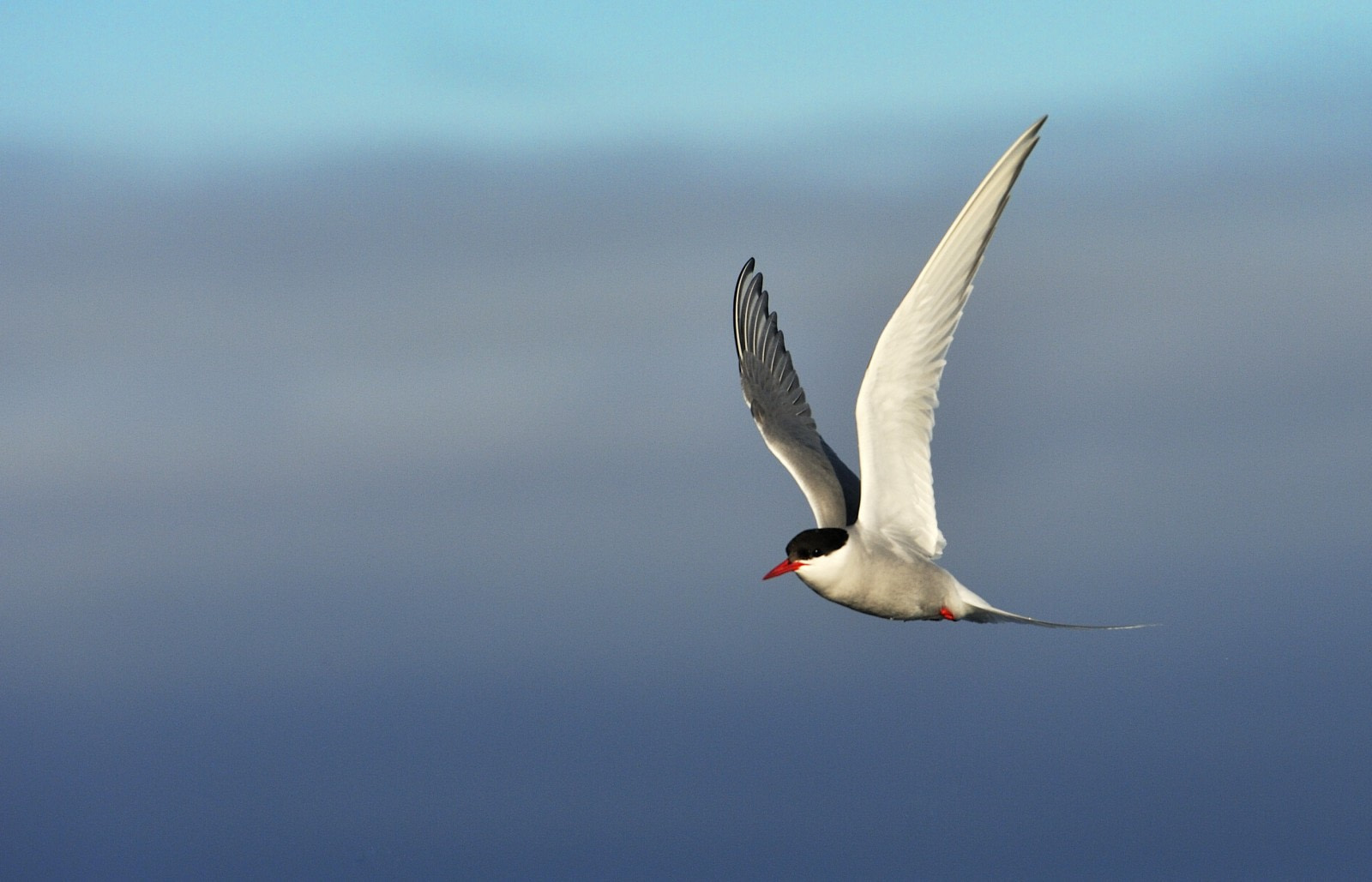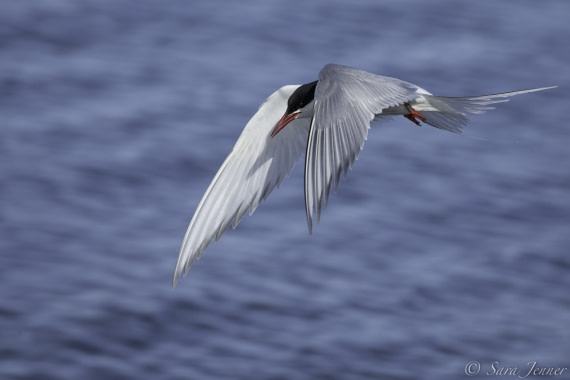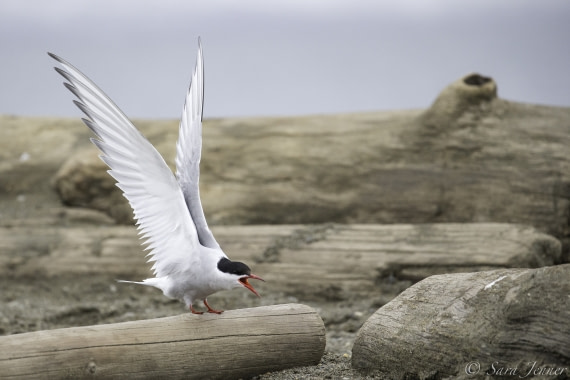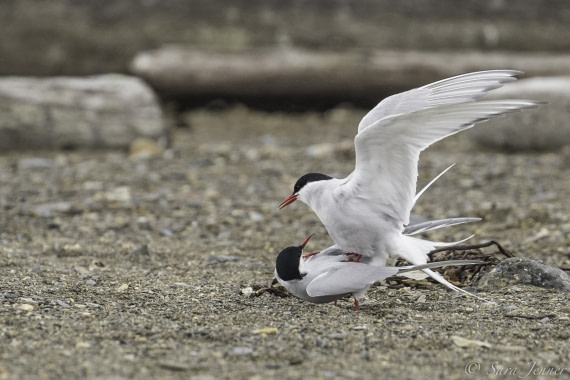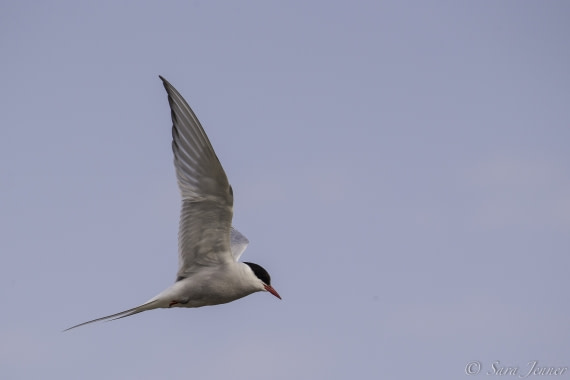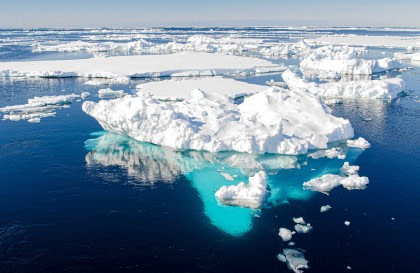Name: Arctic tern (Sterna paradisaea)
Length: 25 - 40 cm (10 - 16 inches)
Wingspan: 65 - 75 cm (25 - 30 inches)
Weight: 85 - 125 grams (3 - 4.5 ounces)
Location: Arctic and Antarctica
Conservation status: Least concern
Diet: Fish, crustaceans
Appearance: Grey and white with a black “cap” on their heads, and a red bill
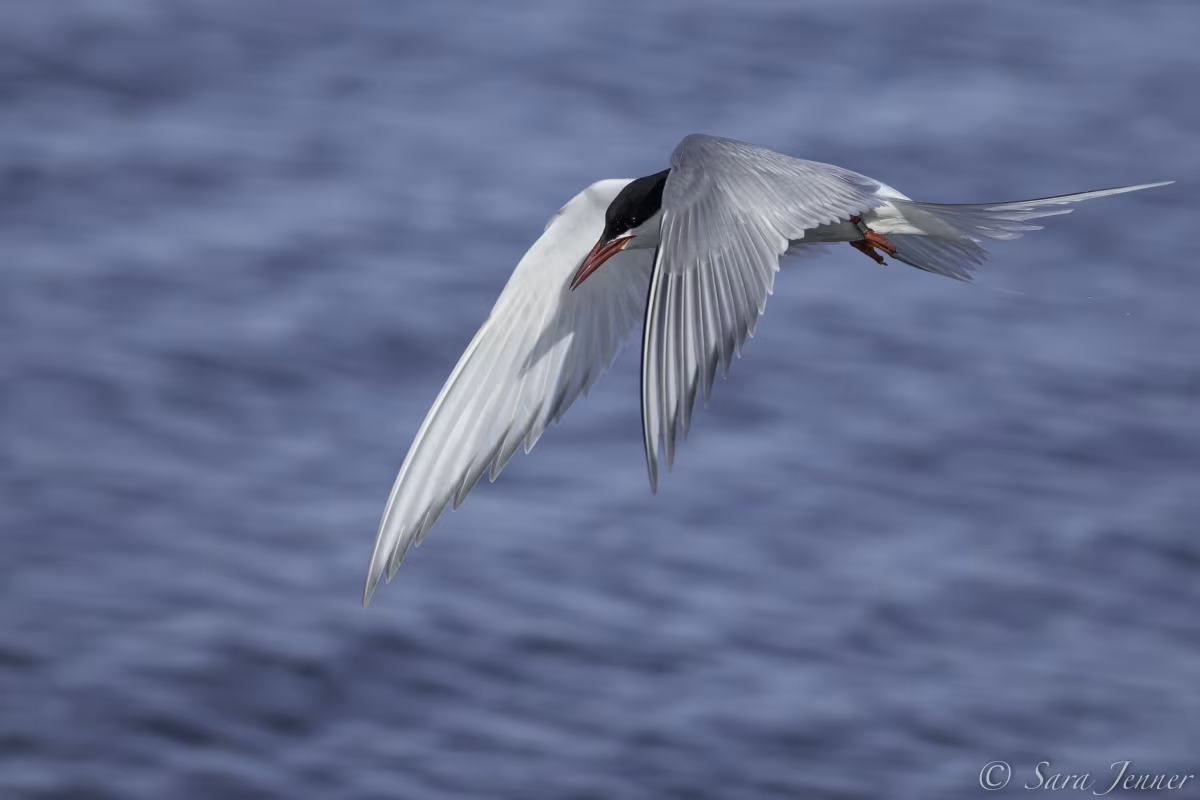
How do Arctic terns feed?
Artic terns fish by dive-bombing the water.
Are Arctic terns social?
These birds live in large colonies and have a number of social calls, including calls that identify them to other birds.
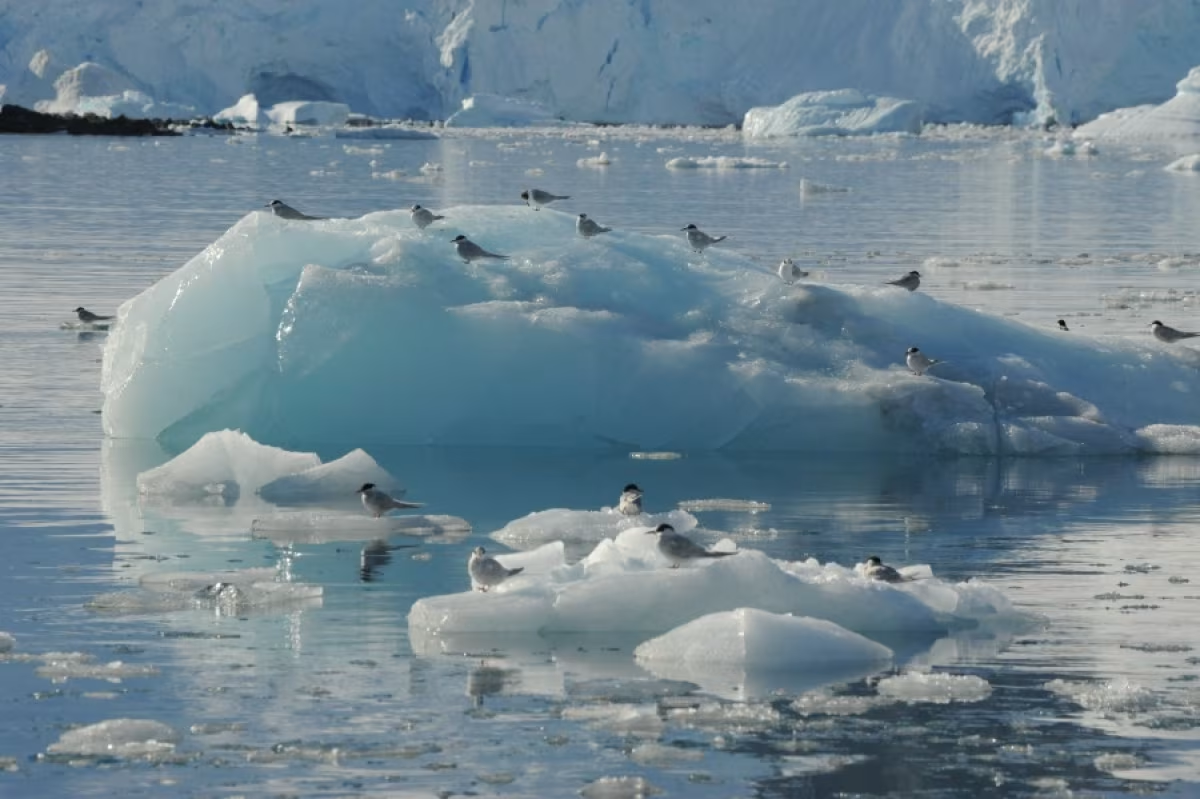
How fast do Arctic terns fly?
Arctic terns fly at about 35 to 40 kph (22 to 25 mph).
What are Arctic tern mating rituals like?
Becoming sexually mature around three years old, Arctic terns nest once every three years. They mate for life and return to the same colony every year.
The courtship ritual of Arctic terns begins with the female chasing a male up into the air (known as the “high flight”), after which the pair slowly descends back to the land. Next, the male Arctic tern brings gifts of fish, a ritual called the “fish flight.”
If this goes well, Arctic tern courtship moves to the ground and involves strutting and posturing with their wings held open.
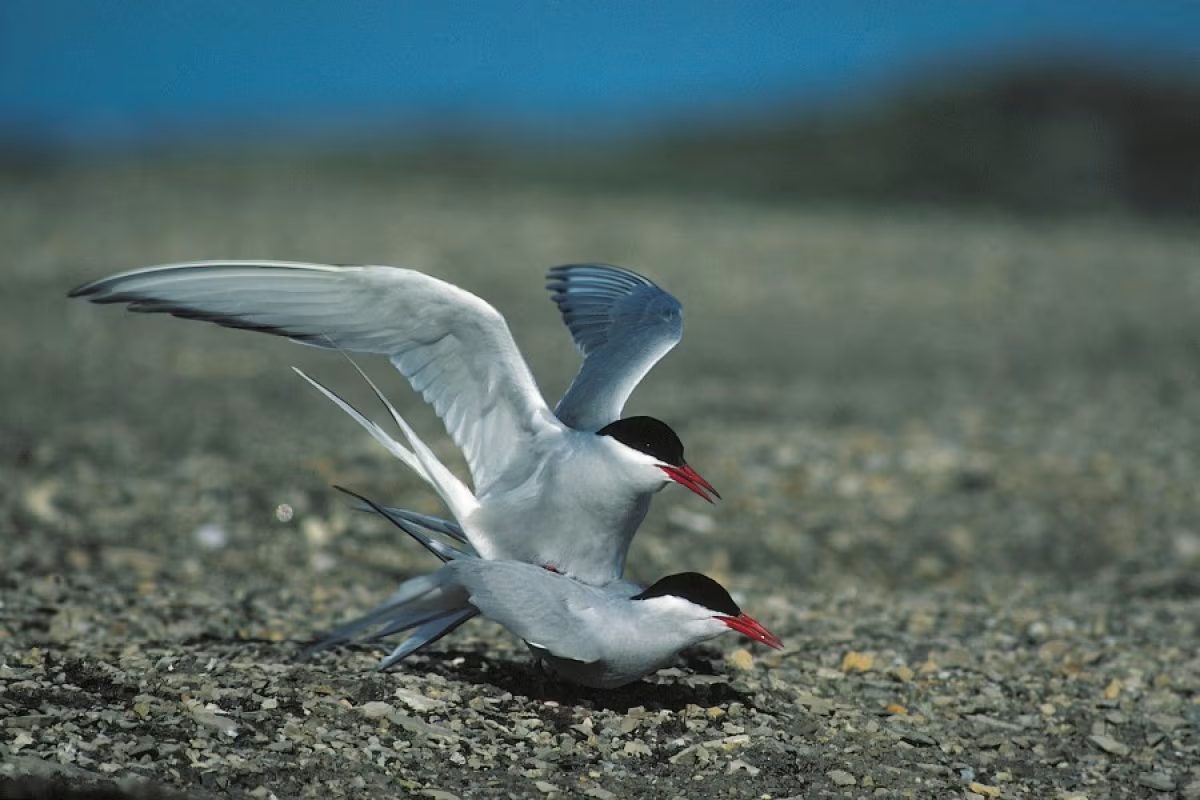
Once paired up, Arctic terns build nests together in small depressions in the ground. Males then continue to fish for their females. Females, meanwhile, lay one to three eggs (two on average).
Artic terns fiercely defend their nests, attacking invaders (including humans) by pecking at their heads. In fact, they are so ferocious that other bird species take advantage of their protective cover by building their own nests nearby.
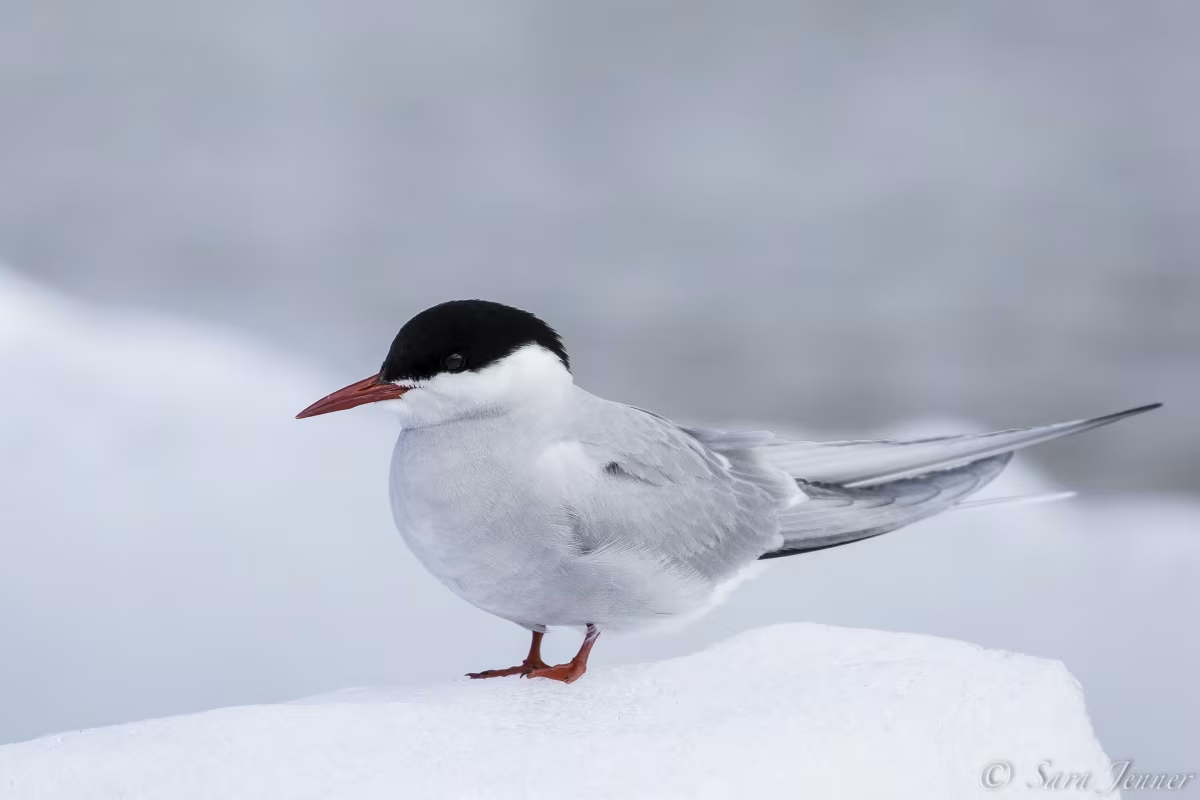
Both Arctic tern parents take turns incubating the eggs, which hatch after three or four weeks. Parents continue to bring fish, slowly increasing the volume of food so that Arctic tern chicks learn to feed themselves on bigger prey.
After about a month, chicks (now known as “fledglings) begin to learn to dive for fish on their own.
How long do Arctic terns live?
Arctic terns live about 20 to 30 years in the wild.
How many Arctic terns are there today?
Wetlands International estimated over 2,000,000 individual Arctic terns in 2015, but it is thought the population is decreasing.
Do Arctic terns have any natural predators?
Eggs, chicks, and adult Arctic terns that are nesting on the ground are vulnerable to foxes, cats, and large birds such as skuas, gulls, and petrels.
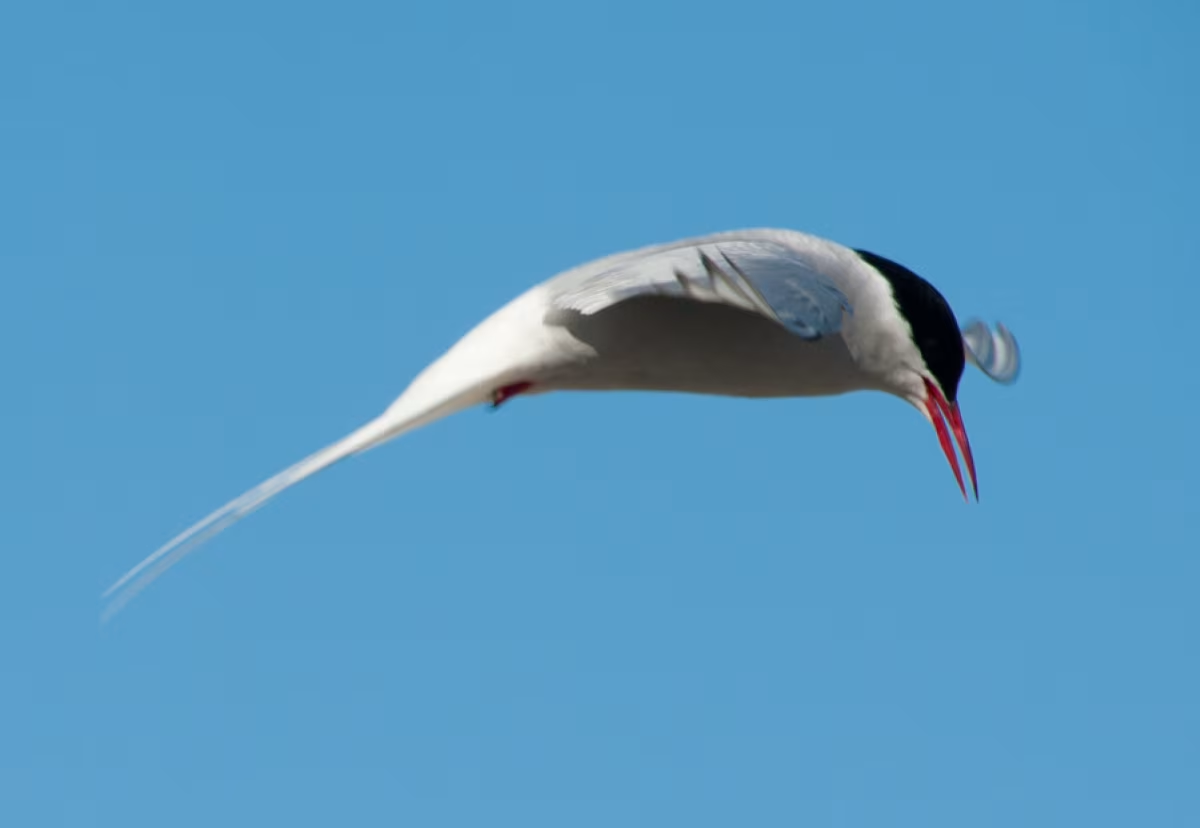
Seven interesting Arctic tern facts
- Because of their migratory pattern, Arctic terns see two summers every year and get more daylight than any other animal in the world.
- Arctic terns have one of the longest-known migratory routes of all animals. Terns that nest in the Netherlands can travel over 90,000 km (55,900 miles) per year.
- Arctic terns travel an estimated 2.4 million km (1.491 million miles) in their lifetimes. That’s three round-trip flights to the Moon.
- Right before a colony of Arctic terns take flight, they grow silent. This moment is referred to as the “dread.”
- Arctic terns do not spend the whole route of their migrations flapping their wings, but instead glide much of the time. Actually, they are such good gliders that they can even sleep while gliding.
- Artic terns are one of the only birds, aside from the hummingbird, that can hover.
- Rather than take direct routes between the North and South Pole, Arctic terns detour long distances to find better feeding grounds or avoid inclement weather.
